Campus Sustainability News
News on campus sustainability initiatives, emerging programs, rankings, awards, student initiatives, green teams, and more from across the Cornell University campus.
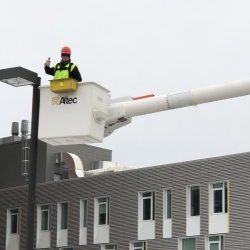
The Cornell Energy Conservation Initiative completed a multi-phase comprehensive lighting upgrade earlier this year which replaced lighting in indoor and outdoor spaces with energy-efficient LED bulbs and has saved the campus over 18,000 tons of carbon and $2.9 million to date.

"...the team came up with a vision for chambers that would have a streamlined mechanical design and a much smaller carbon footprint..."

On Friday, June 21st, Cornell participated in Daylight Hour 2019. 14 departments participated by turning off artificial lights and relying on sunlight, in an effort to reduce energy consumption in office spaces on campus and worldwide.

“It’s fair to say that this atrium is now the heart of our college – our ‘living room,’ so to speak – where everybody goes,” said Wayne A. Davenport, director of facilities at the College of Veterinary Medicine. “The expansion has transformed us. Striving for LEED certification helped to create a strong sense of community in the center of our college.”
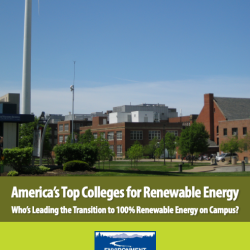
Awarding renewable energy accolades in several categories, Cornell was ranked second in the list of schools replacing fossil-fuel powered systems with renewable systems for efforts to transition heating, cooling, and power systems over the last decade.
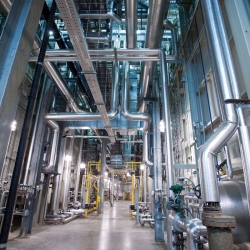
New research conducted by Cornell researchers used campus data to create new models for hybrid energy systems using both heating and electricity. The study was inspired by the Cornell Earth Source Heat project, in which faculty, students and staff are exploring geothermal energy as a sustainable method of heating the Ithaca campus.
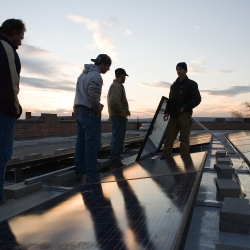
From the rooftops of Cornell’s proposed North Campus Residential Expansion (NCRE), the university hopes to gather enough solar energy to offset the new buildings’ electricity use by up to 35%, create about 1 megawatt of electricity annually and further reduce the university’s carbon footprint.“Cornell has a goal for the Ithaca campus to become carbon neutral using 100% renewable energy by 2035,” said Rick Burgess, vice president for facilities and campus services. “In line with this commitment, and encouraged by campus and community input, we are seeking to increase the amount of renewable energy that will be used in the proposed project. We are aiming to make a great project even better.”

"...Cornell is a pioneer of purpose-driven science that works across disciplines. And CALS has a prime focus on food energy and environmental resources..."
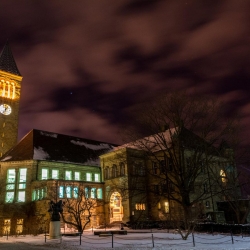
The annual Winter Setback program saved the Cornell campus over $80,000 in 2018, 20% less than in previous years. What changed?

Bert Bland is responsible for around-the-clock electric, heating, cooling, water, sewage, energy generation, distribution, and use-optimization of Cornell University’s 250+ buildings on the Ithaca campus. He was interviewed by The Megawatt Hour as part of their series "Complexities in Energy Decision Making."
